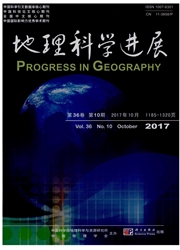

 中文摘要:
中文摘要:
随着人本主义思潮的兴起,社会生活空间越来越受到重视。加强城市社会生活空间的研究,有助于提高城市居民生活质量、加强城市空间的优化调控。文章从功能空间和本体论的角度,重新界定了城市生活空间的内涵以及研究城市空间的新视角。系统梳理了国内外生活空间研究的最新进展。研究发现,城市生活空间成为近年来研究的热点内容,研究尺度从宏观向微观转化,人居环境和生活质量评价是当前主要的研究内容。研究方法也趋于多元化,除了传统的实证主义、人本主义、结构主义方法外,还出现了行为地理学、时间地理学以及借用文化生态学和后现代主义等一些行之有效的新方法。未来的研究应该更加注重宏观和微观相结合的研究,结合快速的城市化进程,城市生活空间的具体类型以及形成演化机理有待进一步加强,积极探索更多的规划手段和调控机制,不断优化城市的生活空间格局。
 英文摘要:
英文摘要:
With the rise of the humanistic trends, social and life space was paid more and more attention. Strengthening the research on urban living space will help to improve the life quality of urban residents and ac- celerate urban space optimization. From the perspective of functional space and ontology, this paper redefined the meaning of urban living space and discussed the new perspective of urban space research. The latest prog- ress in existing researches on social and living spaces at home and abroad was reviewed systematically. It was found that urban living space has become a hot research subject in recent years and the research has ranged from macro to micro areas. Living environment and life quality have become the main contents in the research on ur- ban living space. On the other hand, methods also tend to be diversified. In addition to traditional methods of positivism, humanism, structuralism, some effective new methods also appeared such as behavioral geography, time geography, and cultural ecology and postmodernist method. Combination of macro and micro researches should be paid more attention in the future research. The research on specific type and formation mechanism of urban living spaces should be further strengthened. In order to optimize the structure of urban living space, more planning tools and control mechanisms should be applied.
 同期刊论文项目
同期刊论文项目
 同项目期刊论文
同项目期刊论文
 期刊信息
期刊信息
